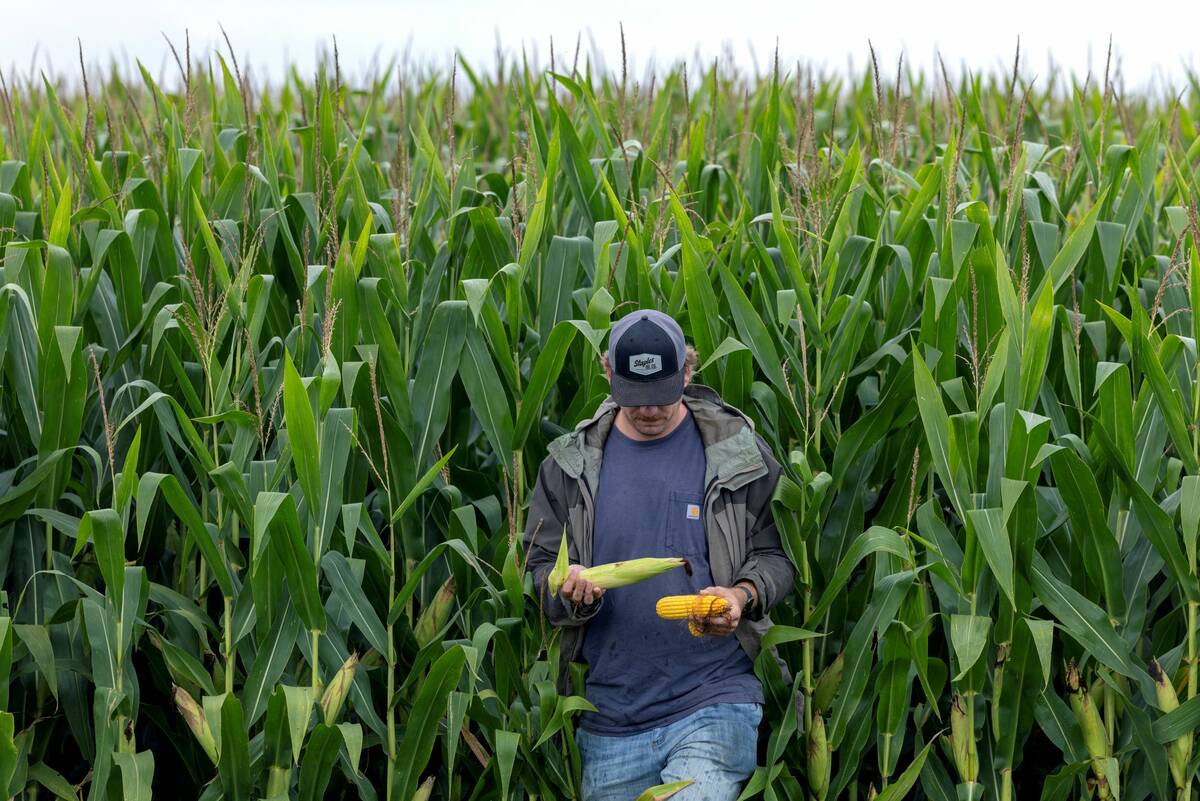CNSC – Accolades from producer groups and others in the grain industry continue to roll in for the federal government’s upcoming transportation legislation.
The planned measures were outlined this week by Marc Garneau, the federal transportation minister, in a speech in Montreal.
The new legislation will allow reciprocal penalties in service level agreements between railway companies and their customers, according to the government release.
A better definition of ‘adequate and suitable’ service in the Canada Transportation Act is also promised, along with improved access to, and timelines for, Canadian Transportation Agency decisions.
Read Also

The U.S. corn crop could be the biggest ever. That’s terrible news for America’s farmers.
The USDA predicts a record corn crop for U.S. farmers, who question the agency’s accuracy amidst high debt and low crop prices.
The inclusion of reciprocal penalties, a clear definition for “adequate and suitable service”, and extended interswitching in the Transportation 2030 plan were especially welcomed by the Grain Growers of Canada (GGC).
“Canada’s grain farmers rely on efficient and competitive rail service to deliver products to markets all around the world”, said GGC Vice President, Jeff Nielsen in a news release. “I urge the Minister to ensure that the required legislation is passed and in place for the 2017/2018 crop year.”
The Canadian Canola Growers Association (CCGA) expressed a similar sentiment.
“Grain shippers have long been bound to performance standards with financial penalty, however, no mechanism has existed for shippers to hold railways commercially accountable for their level of service,” said Rick White, CEO of the CCGA. “Incorporating reciprocal penalties into service level agreements has the potential to elevate the accountability in the supply chain to include the railways.”
“This is a big win for Canadian value-added processors and farmers,” added Chris Vervaet, executive director of the Canadian Oilseed Processors Association (COPA) in a news release. “The Government of Canada is proving that it stands behind its promise to support and create the kind of environment where value-added processing can thrive.”
Sask Wheat Commission
The Saskatchewan Wheat Development Commission (Sask Wheat) also weighed in, saying it was “optimistic” for the future of grain handling in the country.
“This was a positive and encouraging first step to reforming the CTA,” Bill Gehl, Sask Wheat’s chair said. “The Ministers of Transport and Agriculture met with Western Canadian farm groups two weeks ago and the message was clear from the producers in the room: The MRE must be retained and any adjustments must come only after a full costing review is complete. It is good to hear that the concerns of Western Canadian producers were heard and that we will have an opportunity to help shape the grain transportation system.”
The Canadian Federation of Agriculture said the moves were positive, but added reforming the Maximum Revenue Entitlement (MRE) remains a tough problem.
“Transportation costs represent a significant portion of western grain farmers’ expenses. That’s why farm groups have been advocating for a full costing review, which would lead to an accurate and up-to-date MRE,” said Bonnett. “We are still waiting for the government to fulfill their promise to launch the costing review, as they had stated they would, prior to the 2015 election.”










